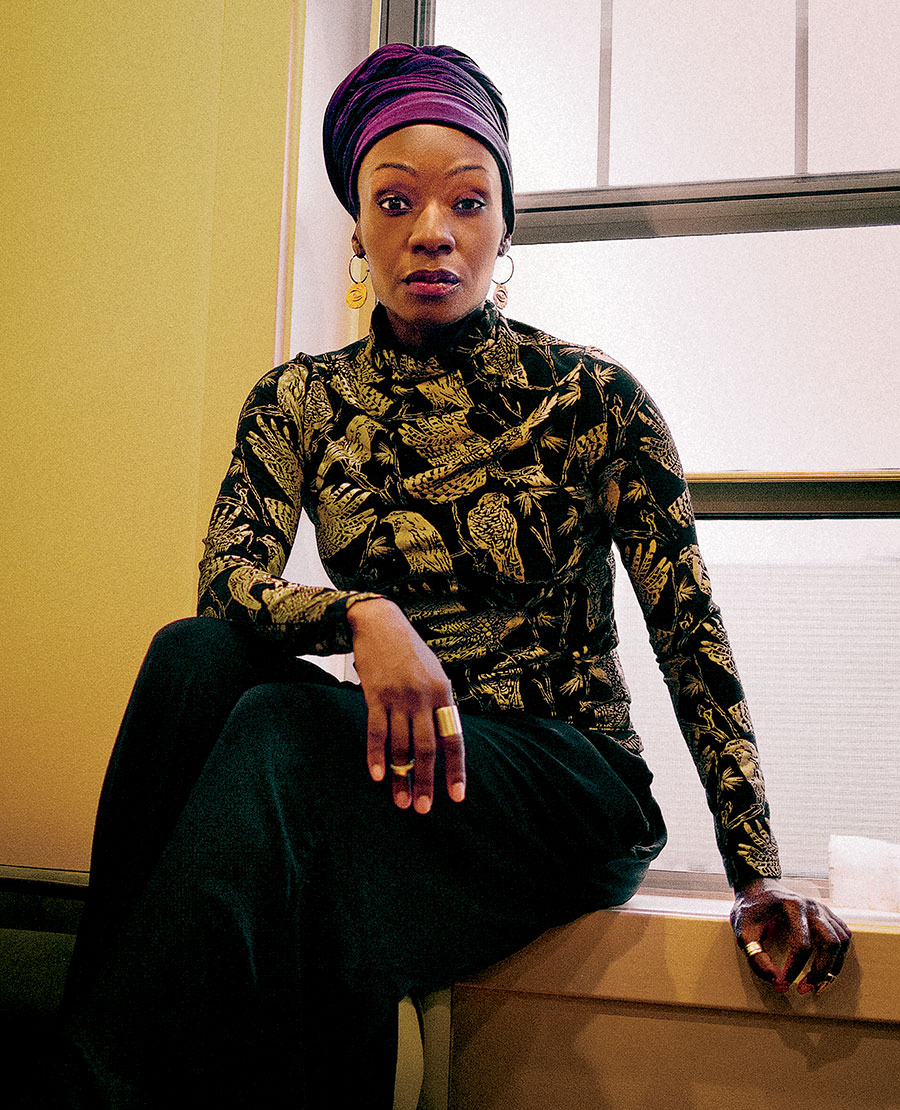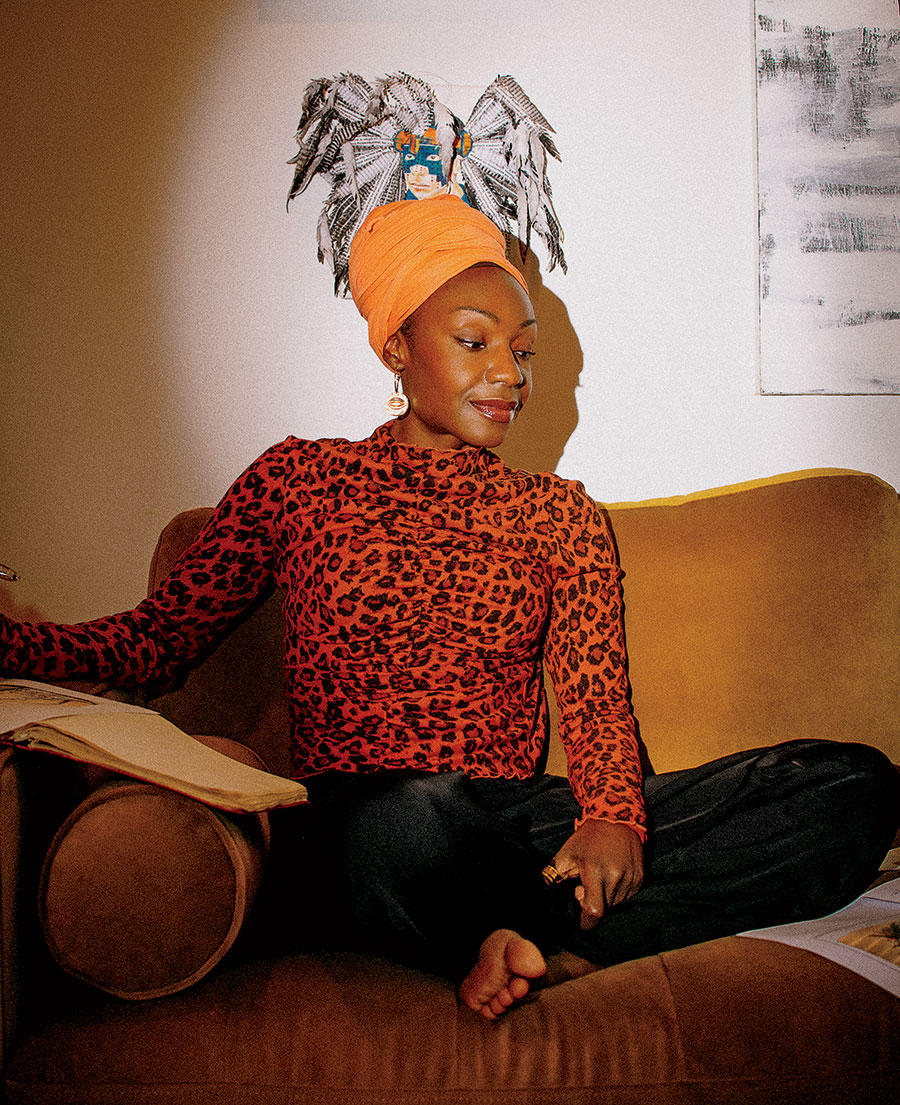Lanise Antoine Shelley is living proof that from darkness, comes light.
“I know that had the pandemic and racial unrest not happened,” says the new artistic director for the House Theatre of Chicago, “I would not be in the position that I am in today at this particular institution.”
Shelley was appointed to the role in March, a year into the company’s forced dormancy caused by the pandemic. She was chosen from among dozens of candidates to replace Nathan Allen, the House’s founding artistic director.
Born in Haiti, raised on the West Coast, and trained at Harvard and the British American Drama Academy, Shelley arrived in Chicago in 2009 after five years as a company member at Milwaukee Rep. Chicago audiences know her primarily as an actor — most recently in School Girls; Or, The African Mean Girls Play, which reopened the Goodman Theatre this summer — but she’s also expanded into playwriting and directing. “I think every actor wants to take back their power in some way,” Shelley says. “Just shifting their stance around the table is something that I think everyone considers.”
Shelley hadn’t worked with the House before applying for the AD position — which is part of what makes her a radical choice to lead a company that’s had a reputation for insularity. Once a whiz-kid troupe that staged inventive riffs on cultural touchstones like Peter Pan and The Wizard of Oz by cultivating vibes that felt more like rock shows than traditional plays, the House is now, somehow, two decades old.
Like many other ensemble-based theaters in Chicago — Steppenwolf and Lookingglass being prominent examples — the House was formed by a cohort of college grads (in this case, mostly from Southern Methodist University) who wanted to work together. As with Steppenwolf and Lookingglass before them, the House ensemble’s chumminess kept the group too homogeneous for too long.
“It was a boys’ club,” Shelley says bluntly. “They even say that it was a boys’ club, and no one refutes that it was insular and exclusionary.” During the House’s first 10 years, when it produced most of its scripts in-house, writing credits were handed back and forth among male company members. Even since the company began to produce work by outside playwrights, it has staged only two plays by female writers.

The ensemble has also been mostly white. Shelley notes that at the moment of her appointment, “the company consisted of 52 people: 48 white and 30 men.” And given the troupe’s penchant for remounting its successful originals every few years, “we would literally be regurgitating the same people, the same perspective and stories,” she says.
In August 2020, amid that summer’s wave of Black Lives Matter protests and with theater artists and workers of color calling for accountability, Allen released a statement apologizing for casting white actors as Asian and Indigenous roles in many of the company’s early plays, perpetuating racist tropes in the writing of those characters, and excluding artists of color for most of the House’s history. Two months later, Allen resigned.
Shelley has spent the bulk of her first months on the job implementing plans to shore up the House’s foundation: making antiracism training available, adjusting budgets to allow for equitable pay, and restructuring the company. “People are asking for diversity in creative teams, diversity in administrative teams, and diversity on the board,” she says. “That is imperative for me going forward.”
As live performance returns, Shelley opens her first season with her own new adaptation of Hans Christian Andersen’s The Snow Queen, running this month at the Chopin Theatre. With whimsical spectacle, ambitious puppetry, and illusions designed by magician and founding company member Dennis Watkins, the production promises to have the feel of a traditional House show.
But unlike Andersen’s traditional story, Shelley’s version centers on the title character. “It is a way of heralding my leadership, the change of the House’s culture from the boys’ club to …” Shelley trails off. “I was going to say a club of everybody, but no, not a club at all. Just blow the walls open.”
DETAILS The Snow Queen Through Jan. 2. Chopin Theatre. Noble Square. $20–$50. thehousetheatre.com



